At the discussion session this afternoon, November 4, of Group 11, including the National Assembly Delegation of Can Tho City and the National Assembly Delegation of Dien Bien Province, Prime Minister Pham Minh Chinh highly appreciated the National Assembly's group discussion on the draft document to be submitted to the 14th National Party Congress; saying that this method is very suitable and effective, creating conditions for many National Assembly deputies to contribute opinions, while improving the quality of comments.
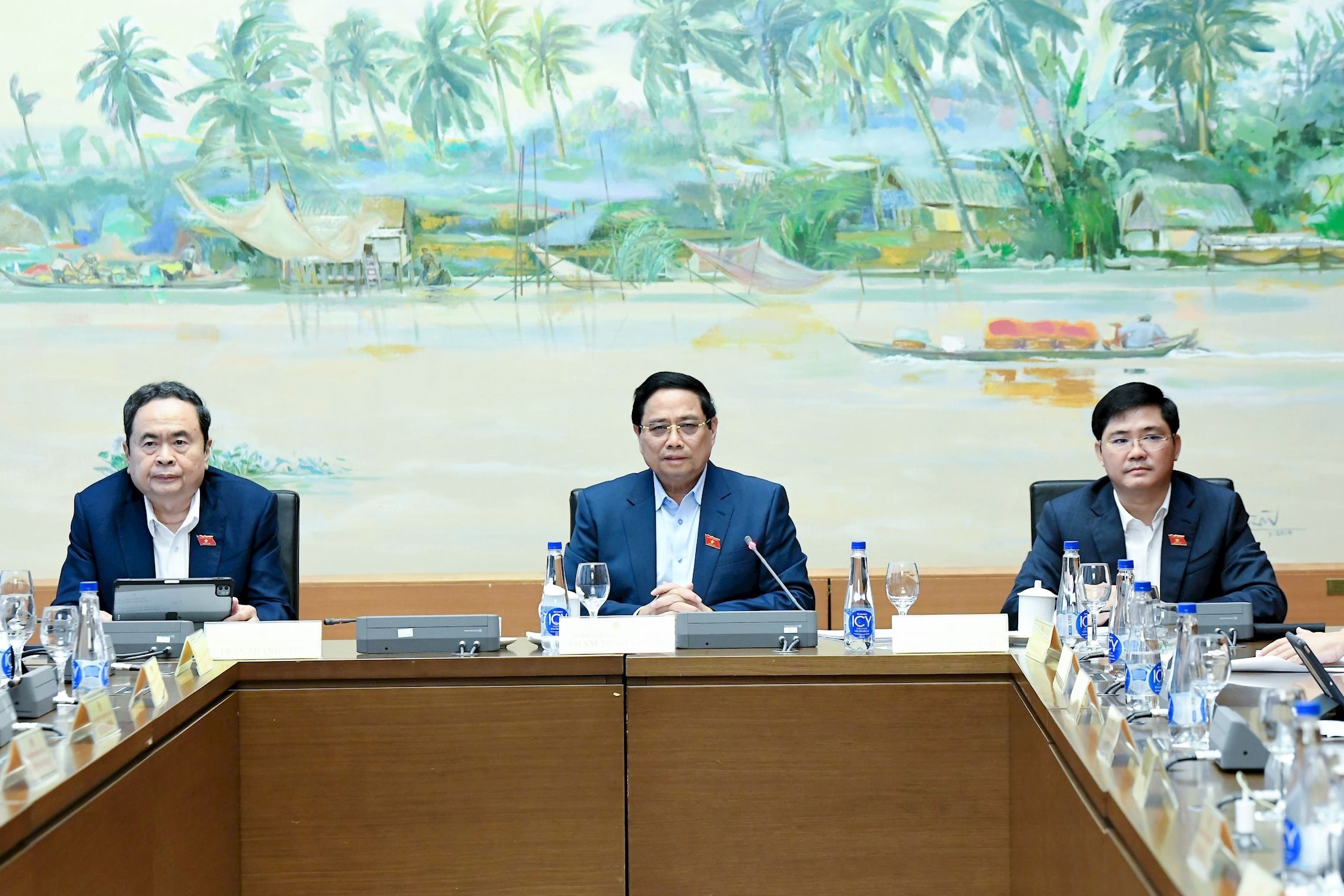
"Upgrading", "enriching content", "increasing efficiency" 3 strategic breakthroughs
Prime Minister Pham Minh Chinh also discussed and clarified a number of issues raised by National Assembly delegates of Group 11.
Regarding the great national solidarity, the Prime Minister stated that this is an extremely important support for our nation, and only with solidarity can we have strength. Re-emphasizing Uncle Ho's advice: "Solidarity, solidarity, great solidarity, success, success, great success", the Prime Minister pointed out that the spirit of solidarity must be demonstrated in all aspects, from solidarity of the entire Party and people to international solidarity; affirming that solidarity is the foundation for cooperation and dialogue, strengthening trust.
Regarding strategic breakthroughs (institutions, infrastructure, human resources), the Prime Minister affirmed that these three breakthroughs were set out at the 11th Congress but until now "still have value" and need to continue to "elevate", "enrich the content", "increase efficiency" to develop the country.
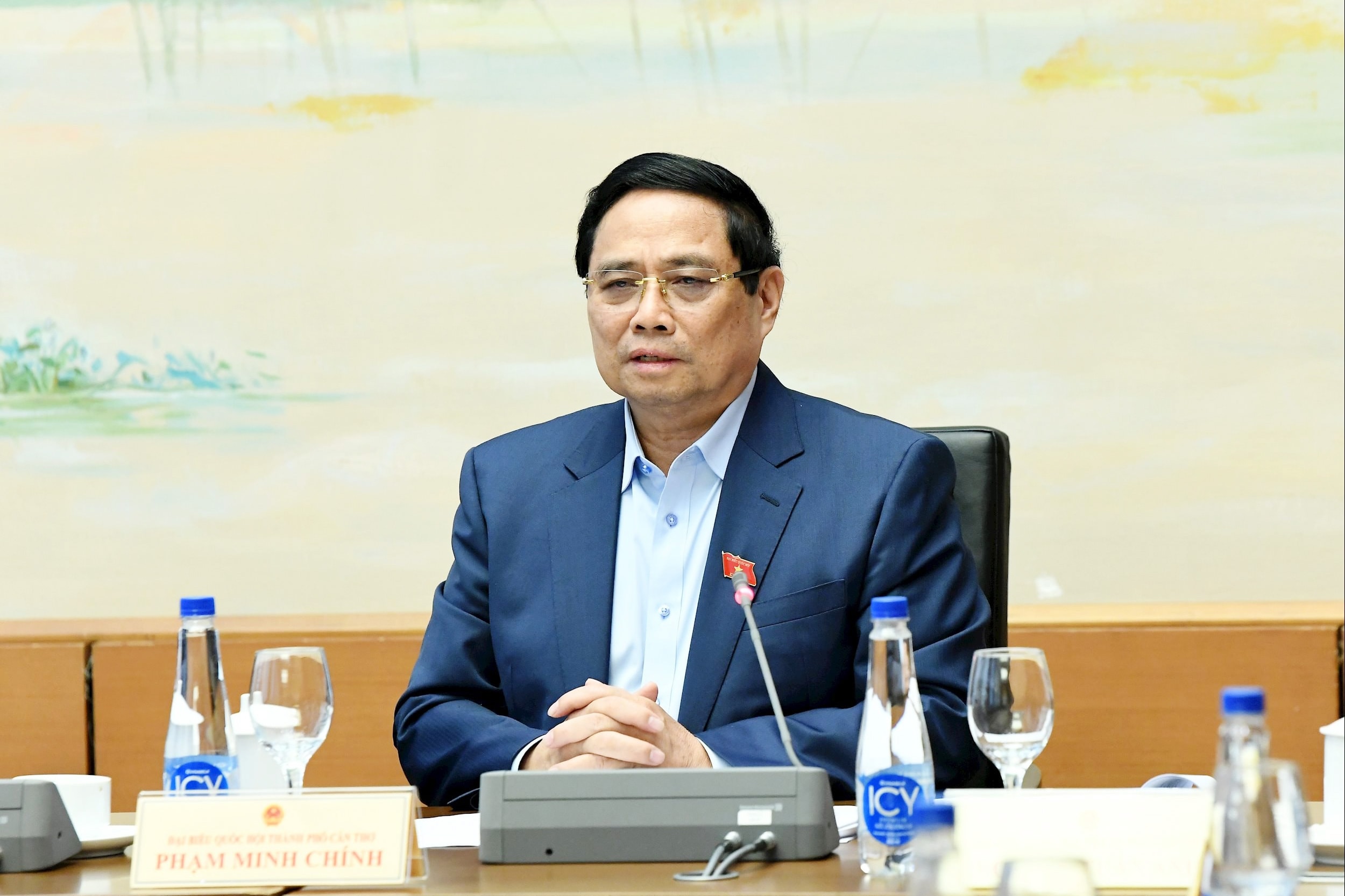
Regarding infrastructure, the Prime Minister said that this term, total investment for development has increased by 55% compared to the previous term. Agreeing with the opinions of the delegates of Group 11 on the need to increase investment in strategic infrastructure, the Prime Minister stated that currently, transport infrastructure (highways, high-speed railways), energy infrastructure, climate change adaptation infrastructure, health, education, and cultural infrastructure... are all being actively implemented.
According to the Prime Minister, the bold decentralization and assignment of investment ownership to localities for expressway projects is a new point of this term and has proven to be highly effective. Localities, although initially hesitant, are now very confident and implementing "very quickly", even faster than the part implemented by the ministry in charge.
The Prime Minister also said that, promoting the experience of this term, in the coming time, in infrastructure investment, what the Central Government does and what the local authorities do must be clearly defined and implemented in accordance with the spirit: Party leadership, State creation, pioneering enterprises, public and private cooperation, prosperous country, happy people. It is necessary to strengthen decentralization and delegation of power along with resource allocation, strengthen supervision and inspection, and improve the implementation capacity of each level.
Regarding institutional breakthroughs, the Prime Minister expressed his complete agreement with the opinions of the National Assembly delegates of Group 11. Accordingly, it is necessary to continue to fundamentally change the thinking of law-making, shifting from a thinking that focuses only on management to a thinking that creates development. Law must be both a driving force, a resource, and a competitive force of the economy; it must come from practice, originate from practice, stick to practice, respect practice and take practice as a measure.
Citing recent bottlenecks in the implementation of investment projects, the Prime Minister said that to resolve the problems, we have decided to have both bidding and designated bidding. But whether it is bidding or designated bidding, the final issue "is still up to the officials". Do you dare to take responsibility for timely and effective bidding? For example, when buying the Covid-19 vaccine, the buyer bears all the risks. If we do not take responsibility, who will?
"In short, the issue of law-making must be both practical and effective. However, promoting the initiative, positivity and sense of responsibility of those who implement it is very important," the Prime Minister affirmed.
Fast, sustainable development, leaving no one behind
At the discussion session, Prime Minister Pham Minh Chinh also reaffirmed the consistent viewpoint of our Party and State: rapid development but must be sustainable and inclusive.
"Sustainability here includes issues related to people, the environment, and social security. Our point of view is not to sacrifice fairness, social progress, social security, or the environment to pursue mere growth," the Prime Minister stated.
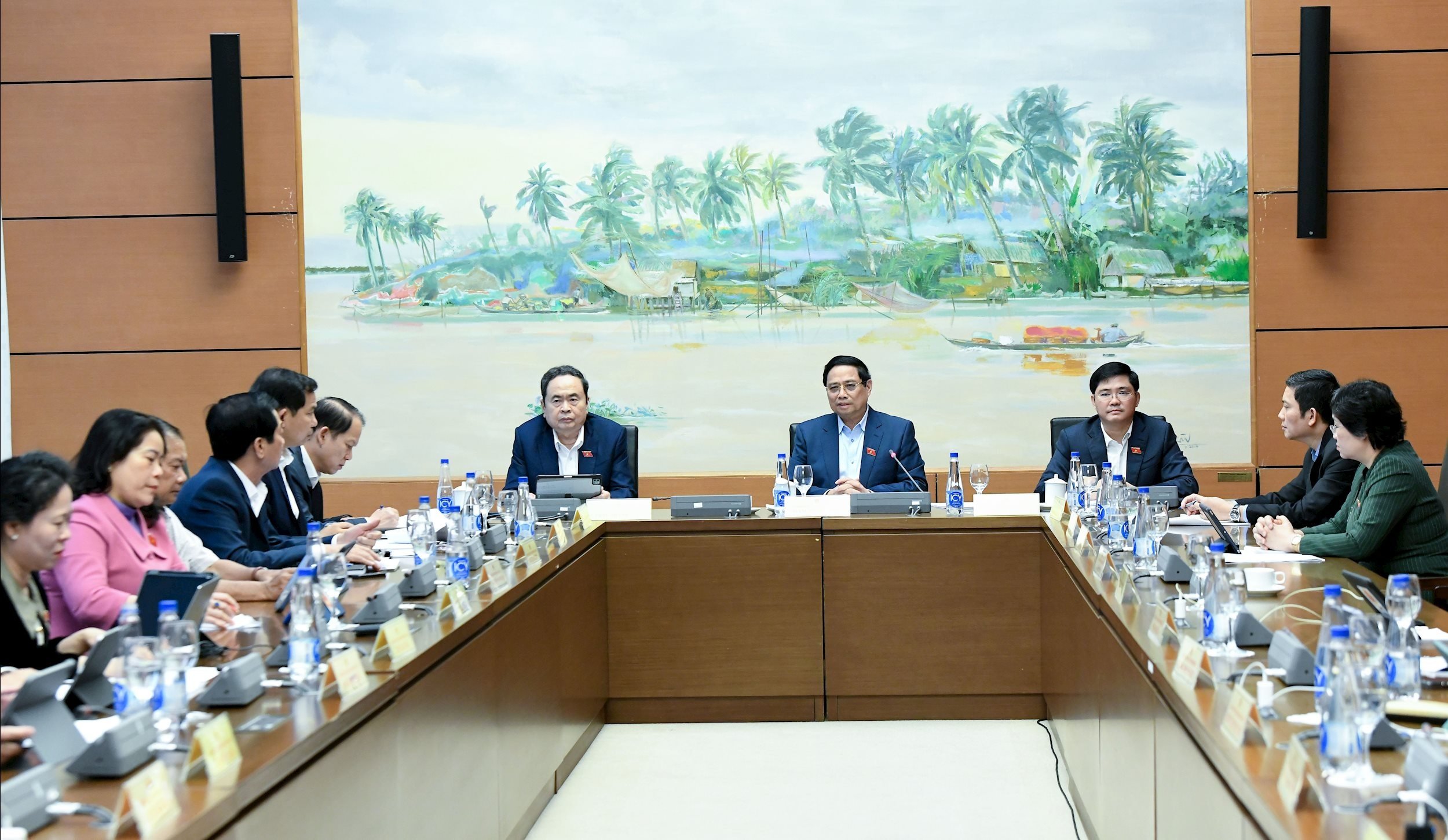
The proof is that in the past terms, we have invested a lot in social security. In this term, the investment in social security is 1.1 million billion VND, accounting for about 17% of the total GDP. Vietnam has effectively implemented the policy of "leaving no one behind", completed the United Nations millennium goals 10 years ahead of schedule, achieved impressive achievements in hunger eradication and poverty reduction, eliminating temporary and dilapidated houses, implementing national target programs on socio-economic development for people in remote, mountainous, border and island areas...
The Prime Minister also emphasized the importance of culture, considering it an "endogenous strength"; affirming the view that "culture lights the way for the nation. If culture remains, the nation remains; if culture is lost, the nation is lost."
Regarding the economic growth target, the Prime Minister said that setting a high target (8% or more) is a great pressure, but necessary to achieve strategic goals; at the same time, he expressed his belief in the nation's mettle: "The more pressure, the more effort must be made. The more difficulty, the more initiatives arise."
Regarding climate change adaptation, agreeing with the assessment and proposals of National Assembly delegates of Group 11, the Prime Minister pointed out that the world also identified the need to unite, join hands and promote multilateralism and international cooperation in this field.
And what do we need? According to the Prime Minister, what we need first is a legal framework to protect the environment and adapt to climate change in a systematic way. Second is resources, we must promote public-private cooperation, mobilize the state and people to work together, mobilize international support resources. Third is technology, many areas need new technology to adapt, for example, to prevent landslides, we need to have impact assessments, build programs, plans... Fourth is management methods.
"This time, we have included climate change and environmental protection as one of the central tasks. Previously, we identified the central task as socio-economic, but now it is also the environment," the Prime Minister stated.
Source: https://daibieunhandan.vn/thu-tuong-pham-minh-chinh-the-che-phai-kien-tao-phat-trien-lay-thuc-tien-lam-thuoc-do-10394360.html


![[Photo] Opening of the 14th Conference of the 13th Party Central Committee](https://vphoto.vietnam.vn/thumb/1200x675/vietnam/resource/IMAGE/2025/11/05/1762310995216_a5-bnd-5742-5255-jpg.webp)







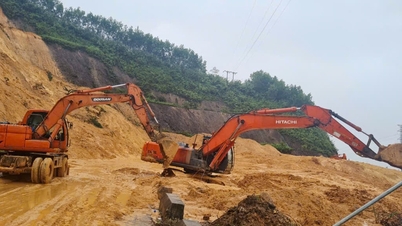

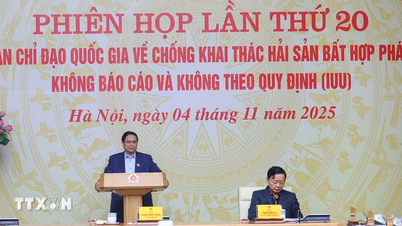

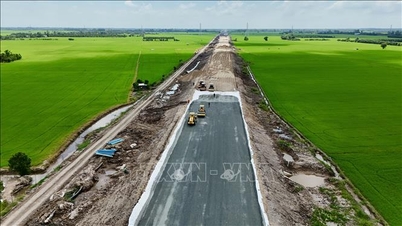



![[Photo] Government holds a special meeting on 8 decrees related to the International Financial Center in Vietnam](https://vphoto.vietnam.vn/thumb/402x226/vietnam/resource/IMAGE/2025/11/04/1762229370189_dsc-9764-jpg.webp)


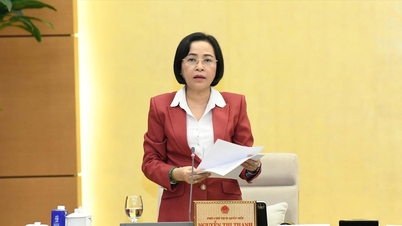
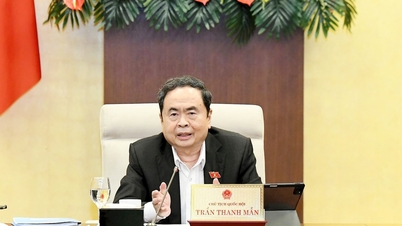
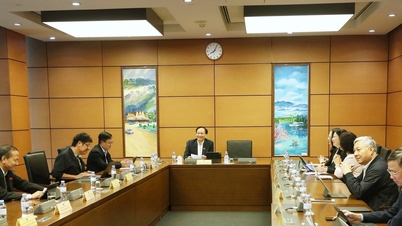





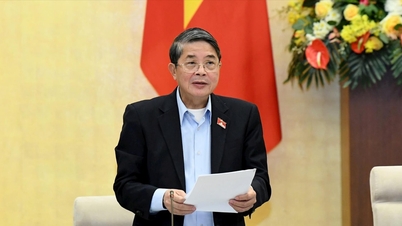
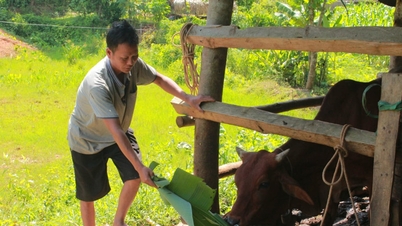
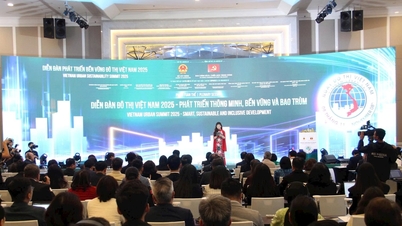
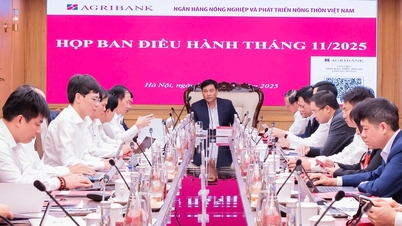

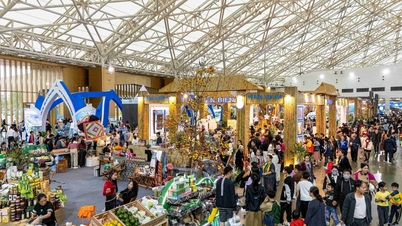

![[Photo] Panorama of the Patriotic Emulation Congress of Nhan Dan Newspaper for the period 2025-2030](https://vphoto.vietnam.vn/thumb/1200x675/vietnam/resource/IMAGE/2025/11/04/1762252775462_ndo_br_dhthiduayeuncbaond-6125-jpg.webp)





































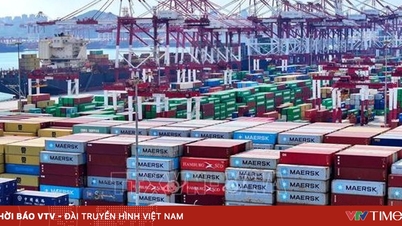

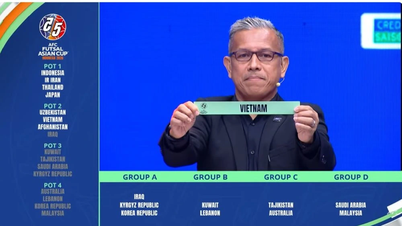



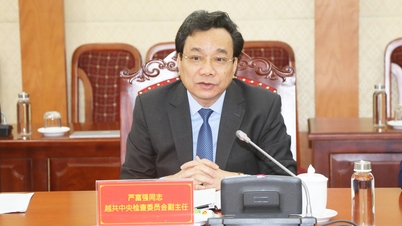

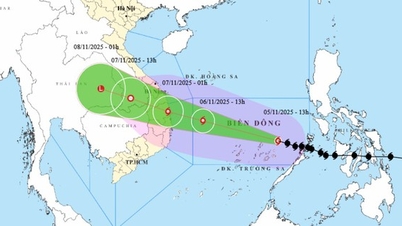




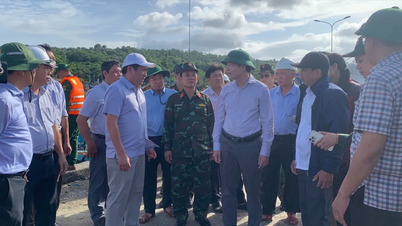
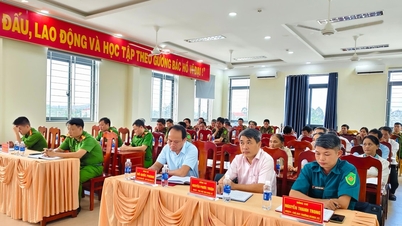

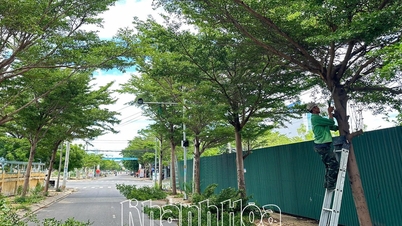

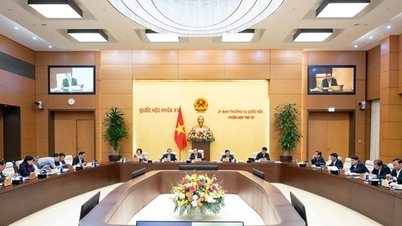
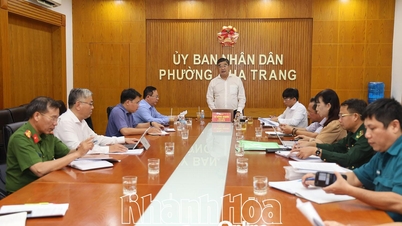











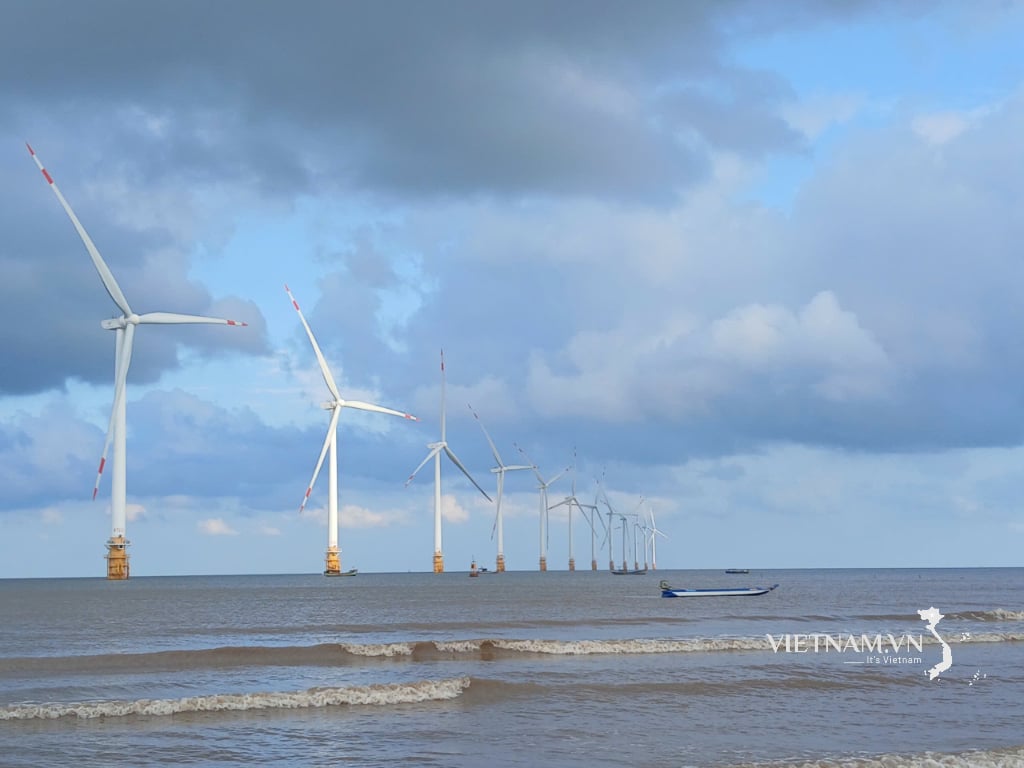



Comment (0)